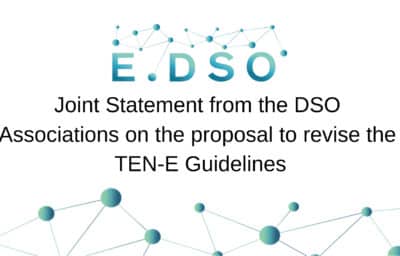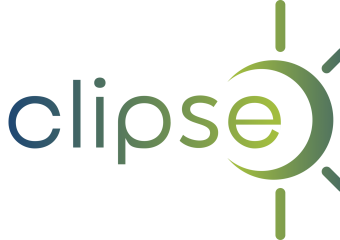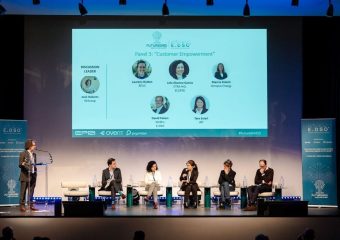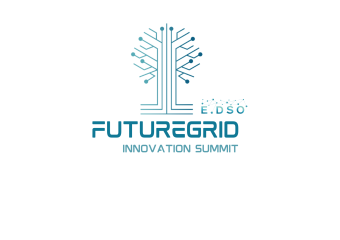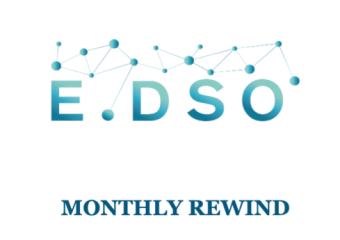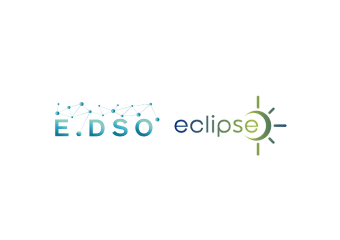Joint Statement from the DSO Associations on the proposal to revise the TEN-E Guidelines
In the course of revising Regulation (1316/2013) establishing the Connecting Europe Facility, the European Parliament proposed in its position, adopted on 12 December 2018, to open the Trans-European Network-Energy (TEN-E) Regulation (347/2013) for revision in the light of the European Union’s present climate and energy targets. Our four Associations representing the DSOs at EU level – CEDEC, E.DSO, Eurelectric, GEODE – welcome this proposal and would like to emphasise a few key points for the consideration of the EU institutions in their trilogue discussions.
Why is a revision needed?
Since the adoption of the Regulation, the picture has changed substantially: the political priority and citizens’ consensus has moved from an energy policy focused on large infrastructures to more decentralised energy networks allowing customer empowerment and integration of large amounts of renewables. The TEN-E Regulation neither reflects this new situation in the European energy system nor supports reaching the Union’s climate and energy goals as put forward in the Clean Energy for All Europeans Package and the Paris Agreement. A revision is therefore necessary to make sure that the Regulation truly supports projects contributing to these energy and climate objectives.
The DSOs have become ever more important and central in the energy system. This is particularly the case with regards to customer participation and integration of RES, as currently around 90 % of European renewables are connected at distribution level. However, to date, only four DSO smart grid projects have been selected as Projects of Common Interest (PCI) to be implemented under the TEN-E Framework, out of 170+. The continuous increase of renewable energy and electrification, in accordance with climate and energy targets, does and will require considerable investments in the distribution system’s infrastructure. It is thus essential to revise the TEN-E Regulation so that it reflects the importance of DSOs in the energy transition and the priorities in the transformation of the distribution systems, and supports the facilitation of the needed investments.
Furthermore, in order to best serve the realisation of EU’s energy and climate targets as well as empower customers, the TEN-E Framework must be revised to encompass and benefit from the contributions of prosumers and new technologies such as energy storage, demand side response, micro-grids (possibly cross-border), electric mobility.
In the light hereof, our Associations fully support the amendments proposed by the European Parliament’s recital 17 and Art. 27.2a (new) of the new Connecting Europe Facility Regulation for 2021-2027:
- Recital 17: The list of projects of common interest and TEN-E guidelines should be revised to take into account the goals and objectives of the Paris Agreement as well as the Union’s climate and energy targets for 2030 and beyond;
- 27. 2a: Regulation (EU) No 347/2013 shall be revised in time for the next MFF, in order to align the guidelines with the Union energy and climate targets for 2030 and the EU long-term decarbonisation commitment, and to integrate the energy efficiency first principle. [Am. 10]
What should a revision include?
In case the TEN-E Regulation would be opened for review, our Associations propose that such a revision take an ambitious step to adapt to the energy system of the future and contribute to its establishment throughout the EU, in line with the Vision 2050 identified by the multi-stakeholder European Technology and Innovation Platform on Smart Networks for the Energy Transition (ETIP SNET).
With regards to the content of the current TEN-E Regulation, some clear improvements should be highlighted here. As a starting point, our Associations underline the need for a shift in mindset and a new approach and definition to “(Projects of) Common Interest.” From a Regulation centred exclusively around large cross-border transmission infrastructure, a new TEN-E Framework should adapt to new forms of infrastructure projects that take into account the current needs and future trends in the European energy sector: digitalisation, customer participation, decentralisation, system-market interactions, and that integrate innovative solutions. As such, a bridge could be established between the TEN-E Framework, recent innovations and the upcoming research framework of the EU: Horizon Europe.
A more open-minded approach to the definition of cross-border projects should as well be adopted, in order to consider not only large transmission projects but also local, decentralised and often participative smart grid projects without physical border. Local, decentralised projects could indeed bring positive effects not only to regional and national systems but also throughout multiple Members States, e.g. in integrating renewables, solving congestions and avoiding negative externalities. This approach could therefore include:
- Projects connecting isolated systems – e.g. islands.
- Projects between Member States using digital platforms to release the benefits of smart grids in both sides of borders.
- Projects that lead to a broader adoption of similar concepts across Europe, such as smart grid solutions in multiple Member States which generate additional value for the connected citizens.
- Projects that foster a European approach to flexibility and to extending the engagement of consumers, notably by better linking distribution and transmission system operation to existing and new centralised and local markets.
In addition, a revised TEN-E Regulation should of course adapt the criteria for participation in Projects of Common Interest. Our Associations propose the new Regulation to decrease the number of criteria that smart grid projects must pursue from 6 to 3, to include infrastructure funding down to low-voltage projects (<10kV), to remove the compulsory participation of both TSOs and DSOs in smart grid projects.
Last but not least, our Associations remind of the current regulatory constraints in terms of administrative complexity and punishing revenue schemes, the latter relating particularly to low funding rate in CEF and unfavourable national revenue regulation in multiple Member States, which neutralise or even exceed the grant received. This situation not only disincentivises DSOs from participating in PCI projects, it also means that those that participate do not benefit from the same level of regulatory support by the TEN-E Framework as provided to larger infrastructure projects. This double discrimination constitutes a large obstacle to the participation of DSOs in PCI smart grid projects. Therefore, our Associations propose for a new TEN-E Framework to better adapt to the regulatory constraints of the DSOs and to provide the necessary regulatory support to smart grid projects once they have been selected.
Our Associations and their Members remain fully committed to contribute to the fulfilment of EU climate and energy goals and believe that a revision of the TEN-E framework could enhance this further.
Contacts:
CEDEC, Gert De Block: Gert.DeBlock@cedec.com
E.DSO, Florian Gonzalez: Florian.Gonzalez@edsoforsmartgrids.eu
Eurelectric, Gaël Glorieux: gglorieux@eurelectric.org
GEODE, Carmen Gimeno: cgimeno@geode-eu.org

